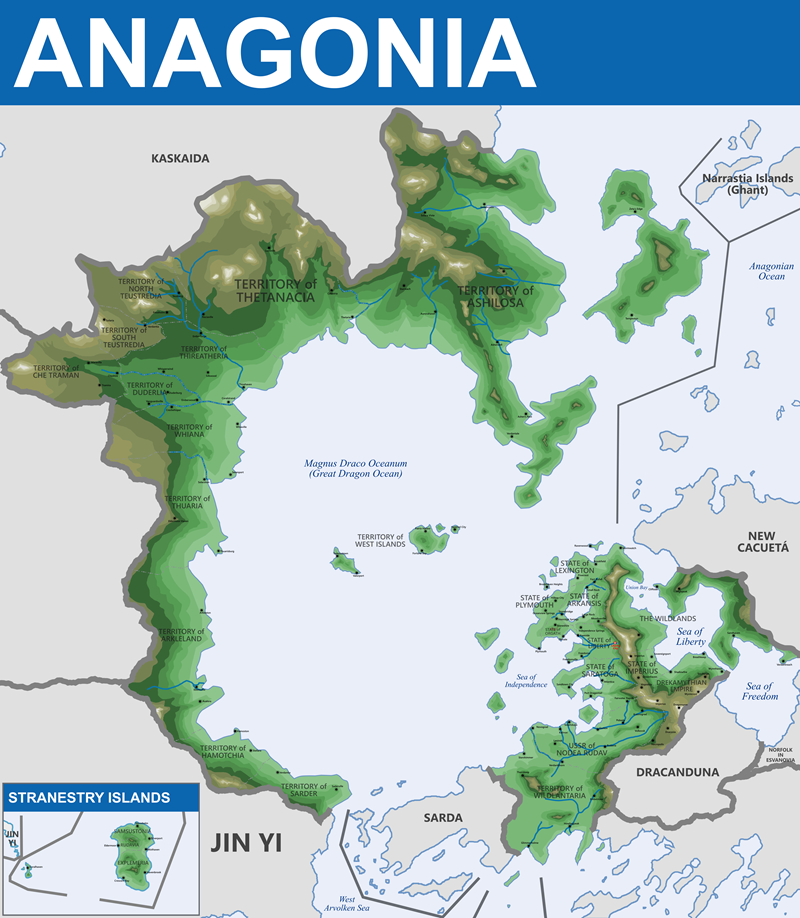Anagonia: Difference between revisions
Jump to navigation
Jump to search
No edit summary |
No edit summary |
||
| Line 93: | Line 93: | ||
==Introduction== | |||
==History== | |||
==Etymology== | ==Etymology== | ||
==Geography and Climate== | ==Geography and Climate== | ||
| Line 100: | Line 102: | ||
==Biodiversity== | ==Biodiversity== | ||
==Government== | ==Government== | ||
Revision as of 21:41, 21 April 2024
This article is incomplete because it is pending further input from participants, or it is a work-in-progress by one author. Please comment on this article's talk page to share your input, comments and questions. Note: To contribute to this article, you may need to seek help from the author(s) of this page. |
The Confederate States of Anagonia Anagonia | |
|---|---|
| Motto: "Astra inclinant, sed nonobligant"
| |
| Capital | Liberty City |
| Largest city | Atlantica |
| Official languages | Native Anagonian & English |
| Recognised regional languages | Regional dialects dependent on State or Territory |
| Other languages | (Other European, Russian, Spanish, Other Asian, Various Non-Human Languages) |
| Ethnic groups (108 AUR) | Anagonian, Various others determined on state and territory |
| Demonym(s) | Anagonian(s), Confederate(s) |
| Government | Constitutional Republic |
• President | Mileethus Canisilus |
• Vice President | Franklin Johnson |
| Establishment | |
• XX | XX |
• XX | XX |
• XX | XX |
• XX | XX |
• XX | XX |
• XX | XX |
| Area | |
• Total | 21,864,400 km2 (8,441,900 sq mi) |
| Population | |
• 108 AUR estimate | 450,522,407 |
• Density | 5.77/km2 (14.9/sq mi) |
| GDP (nominal) | 108 AUR estimate |
• Total | D$28,424,257,741,025 |
• Per capita | D$78,246.01 |
| Gini | 0.43 low |
| HDI | 0.927 very high |
| Currency | Confederate DENAR (D$) |
| Time zone | UTC+5 (Anagonian Standard Time Zones) |
• Summer (DST) | UTC+6 (Anagonian Standard Time Zones) |
| Driving side | right |
| Calling code | 678 |
| Internet TLD | .CSA |
The Confederate States of Anagonia has:
| |


